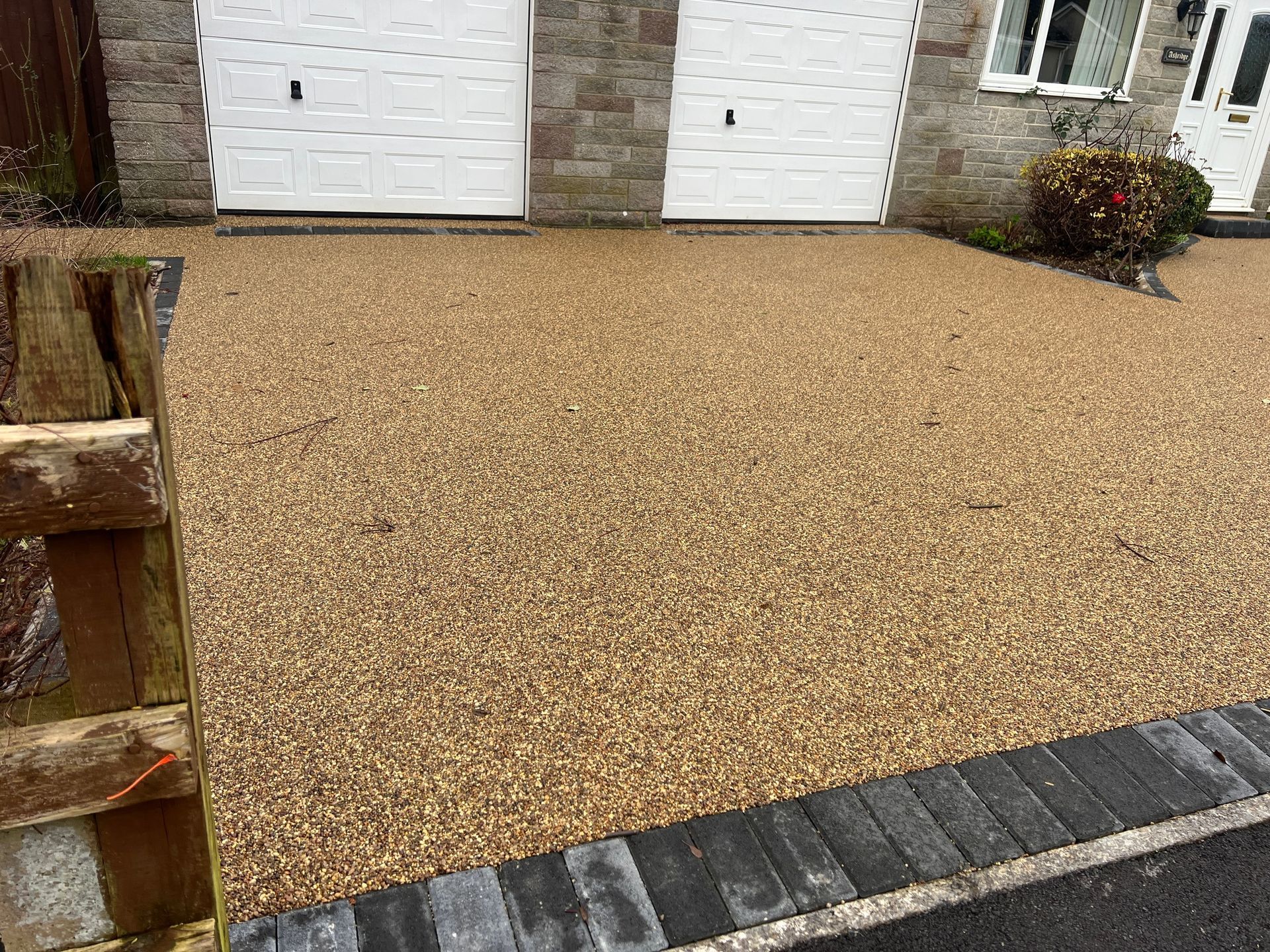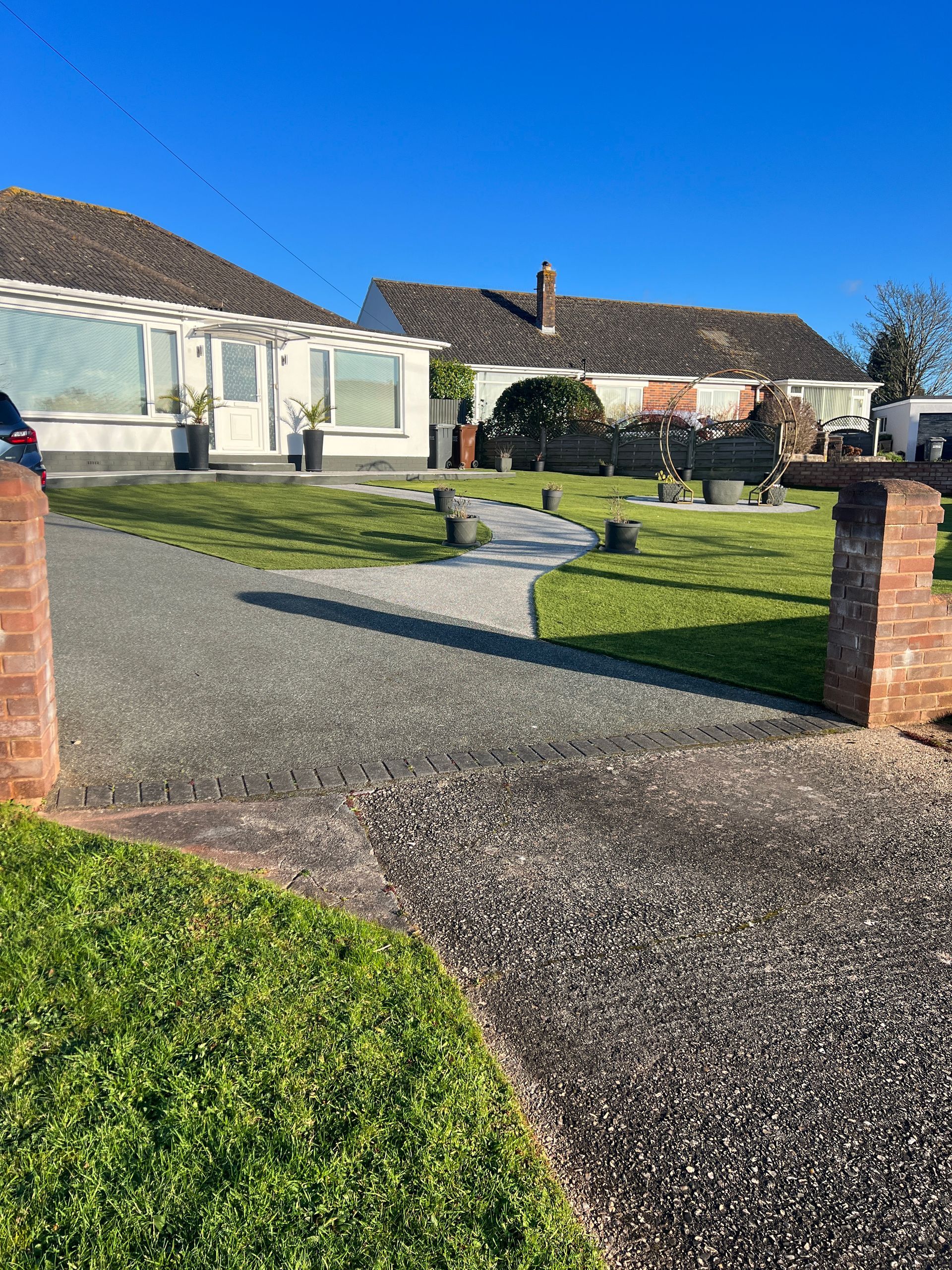Resin Bound Vs. Resin Bonded: How Do They Differ?
Resin-bound and resin-bonded driveways have grown in popularity as driveway surfacing alternatives because of their longevity, visual appeal, and low maintenance requirements. However, both names are frequently used interchangeably. We'll compare resin bound and resin bonded driveways in this article to help you determine which is best for your house.
The main difference between these two types of driveways is the amount of
effort done prior. The
resin and
aggregates for a
resin-bound driveway would be blended together before being evenly spread over a previously
prepared base. Resin is
put on top of the prepared base for resin bonded surfaces, and aggregates are then
laid on top to make a
resin-bonded driveway.
Resin-bound driveways are created by combining aggregates (such as gravel or crushed stone) and a clear resin binder. The following traits are common in resin-bound driveways:
A resin bound driveway is porous, which means that water can drain through it. As a result, they are a more environmentally friendly option that aids in the prevention of flooding and surface water buildup.
To achieve a consistent surface, the aggregate, and resin mixture is trowelled or screeded over a firm base. This provides the driveway an appealing, natural appearance.
Resin bound driveways are resistant to the
ravages of time and
traffic, and they require
no routine maintenance. They are
not affected by oil,
sunshine, or
cracking. They are also an excellent
long-term investment because
regular cleaning will keep them
looking brand new for a long time.
Resin Bonded Driveways
Resin-bonded driveways are constructed by first adding a coating of resin to an existing surface (such as concrete or tarmac) and then distributing loose pebbles on top. The following characteristics distinguish resin-bonded driveways:
Resin bonded driveways are impermeable, as opposed to resin bound driveways, which allow water to trickle through the surface. Additional drainage methods may be needed to prevent water accumulation.
By distributing
loose particles across a
resin-coated substrate, a
textured and
non-slip surface is created. Resin-bonded driveways are ideal for regions where
slip resistance is
crucial.
How Do They Differ?
It is critical to examine the following criteria while picking between a resin bound and a resin bonded driveway.
A resin bound driveway has a smooth and natural appearance, but a resin bonded driveway has a textured appearance. Choose the one that best complements the decor of your home.
A resin-bound driveway is the greatest solution if you're concerned about sustainable drainage and want to reduce the amount of water that flows off the road.
Both types of driveways can be laid directly over concrete or tarmac, eliminating the need for expensive and time-consuming excavation.
Both types of driveways require
little maintenance. However, because of their
seamless surface, resin bound drives may require
less frequent cleaning.
Before determining which driveway is
ideal for your property, you should understand the
differences between a resin bound and a resin bonded driveway. Resin bound driveways are
permeable,
smooth, and
long-lasting, whereas resin bonded driveways offer a
textured finish that complements existing surfaces. Consider your
interests,
budget, and
needs before deciding on the
best solution. Resin bound and resin bonded driveways are both
long-lasting and visually
appealing options for
freshening up your
home's entrance.
You might also like
Clark's Resin Driveways




